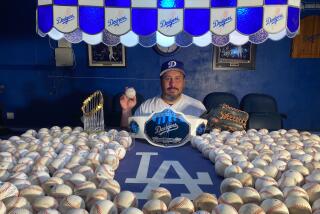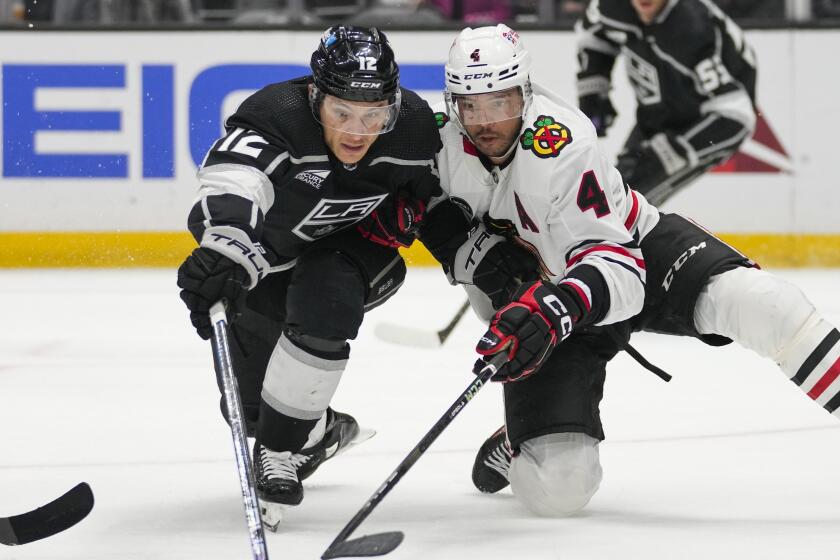Why prosecute Roger Clemens? Because of a teenager
The answer to the question of why Congress would spend time and money attempting to prove that a prominent athlete lied is found in a name.
Taylor Hooton.
The government might not have backed off the pursuit of the truth about Roger Clemens, anyway, given the nature of the high-profile hearing Feb. 13, 2008, that seemed to leave an odor of perjury in those hallowed chambers. But it really can’t back off on Taylor Hooton.
Hark back to March 17, 2005. That was the day Mark McGwire, Sammy Sosa and Rafael Palmeiro appeared before the congressional Committee on Oversight that was looking into the use of performance-enhancing drugs in baseball. Sosa and Palmeiro denied usage. Palmeiro later admitted to not telling the truth and Sosa was found to have tested positive in 2003. McGwire stonewalled the questions with his infamous “I’m not here to talk about the past” and finally admitted his drug usage this spring, just before taking a job as the St. Louis Cardinals’ batting coach.
This 2005 hearing also brought sharp exchanges between congressmen and both baseball’s ownership and union sides. Committee Chairman Tom Davis (R-Va.) led the way as the group quizzed Commissioner Bud Selig and Players Assn. chief Donald Fehr. Those proceedings prompted Davis’ famous line: “There’s a cloud over the game I love.”
During the session, Don Hooton was called to testify about the death of his 17-year-old son, Taylor, a nephew of former major league pitcher Burt Hooton.
Don Hooton told how Taylor had hanged himself in his room July 15, 2003. He had wanted to become a major leaguer, like his uncle. His parents had noticed rapid increase in muscle and size, plus acne and mood swings, but hadn’t understood why. Before Taylor was even taken to the hospital, where he was pronounced dead, a police detective started asking his parents about the syringes and vials of medicine in his room. His cause of death was listed as suicide. His parents say it was the result of hormonal imbalance from steroids, causing severe mood swings.
Don Hooton told Congress that day: “I believe the poor example being set by professional athletes is a major catalyst fueling the high use of steroids among our kids. Our kids look up to these guys. They want to do the things the pros do to be successful.”
He also said, “Players guilty of taking steroids are not only cheaters, you are cowards.”
The room was hushed.
More than five years have passed. Most in that room remember. Those close to Selig say it affected him deeply. Don Hooton formed a foundation in his son’s name, and one of the foundation’s first honorees was Selig.
That day sent Selig out with his jaw set. Baseball’s long-serving commissioner is not one to duck a tough issue. It may go excruciatingly slow, but he takes it on. This time, he took it on by hiring George Mitchell, the internationally known Washington diplomat and negotiator. Mitchell had bartered peace in Northern Ireland, so how tough would it be to analyze the depth of the drug problem in baseball and fix it too?
The Mitchell Report was made public Dec. 13, 2007. Names were named. Generalities became specifics. It was firm and fair. Its strength was its under-kill, and to this day, it stands unsullied.
Congress also understands that it ignited the fire that brought the Mitchell Report. So when Clemens came knocking, asking for a public airing on his inclusion as a drug user in the report, fairness dictated that he be given one. Certainly, new Chairman Henry A. Waxman (D-Beverly Hills), and Davis and the committee in 2008, would have been perfectly comfortable with the report, with a post-report trickle of fessing-up and with a perception of closure brought by Mitchell’s recommendations for the future.
But there was Clemens, demanding his day in front of the cameras. So Waxman and Davis said OK, told him there was nothing to worry about, just as long as he told the truth and understood that lying to Congress can get you in big trouble.
We all saw what transpired, and the government, having warned Clemens, had no alternative but to recommend a longer look. That was done by a group of citizens making up a grand jury. They, too, are aware of the current strain of government spending on the economy, but they said indict.
Now Clemens will go to trial. He can plea-bargain out anytime, but he would have to admit things and show remorse. So far, no signs of that.
Clemens may not be guilty. There may be something we are all missing, as we watched his former trainer Brian McNamee testify that he injected Clemens with steroids, and Clemens’ good friend Andy Pettitte’s claim in a deposition that Clemens told him he had used human growth hormone, and we were astounded by Clemens’ feeble defense that Pettitte “misremembered,” and everybody else, in his view, was lying. Or, Clemens may have convinced himself he is innocent. Psychologists say people can do that.
Justice now needs to be played out, not swept under the rug because of costs. That’s so the next teenager thinking about enhancing a performance with chemicals can see how that whole thing played out for one of the better pitchers in the history of baseball.
Congress has gone ahead because it serves all people in this country, certainly including Taylor Hooton.
bill.dwyre@latimes.com
More to Read
Get our high school sports newsletter
Prep Rally is devoted to the SoCal high school sports experience, bringing you scores, stories and a behind-the-scenes look at what makes prep sports so popular.
You may occasionally receive promotional content from the Los Angeles Times.







